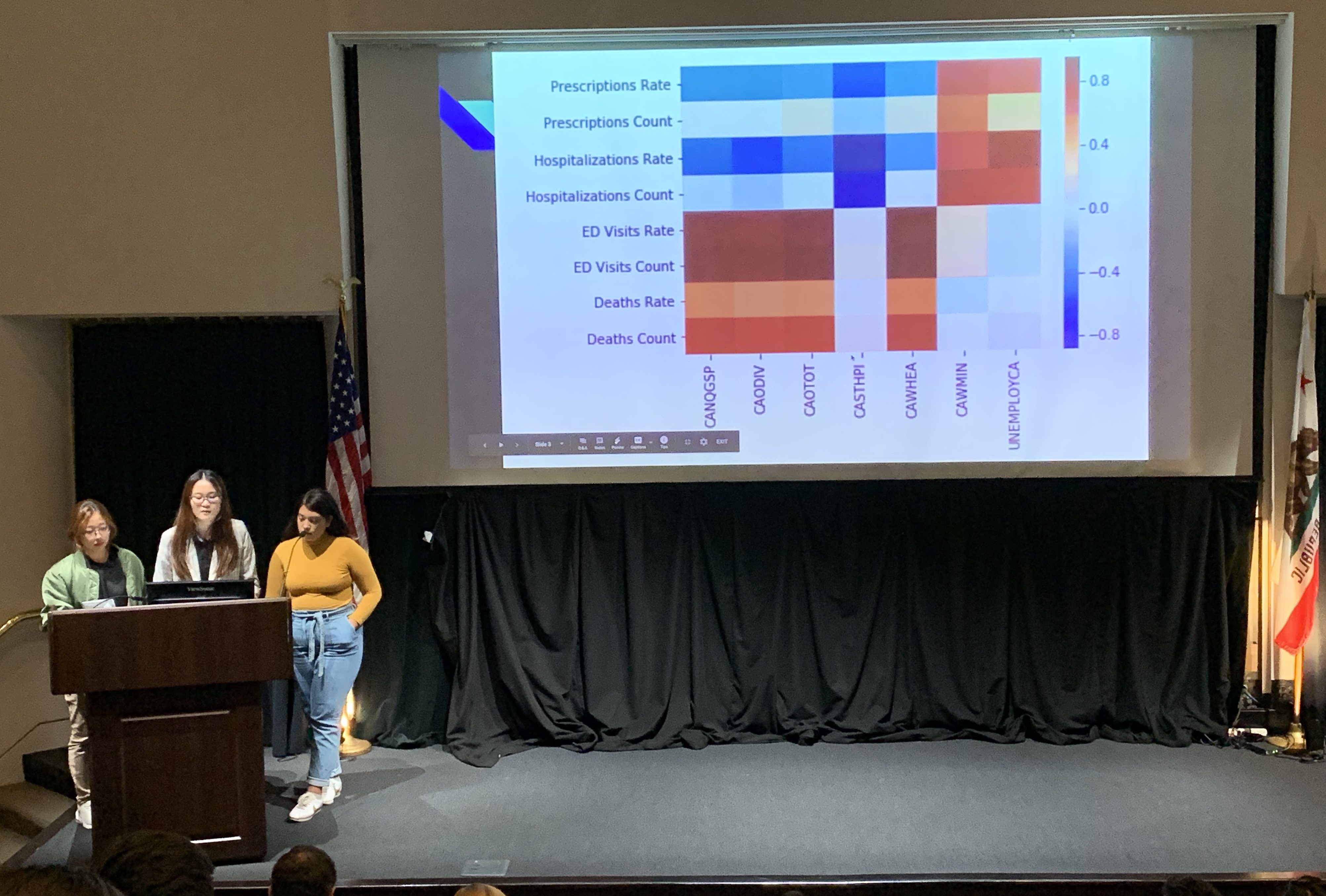Hacking for Good: The 2019 Opioid Hackathon Winners Announce Their Solutions To The Crippling Opioid Epidemic
Innovations in virtual reality, mobile and web applications, electronic health records and predictive models set the pace in the 2019 Opioid Hackathon, held at the Beckman Center of the National Academies of Sciences & Engineering in Irvine, California.
The Hackathon took place over 24 hours from November 12 to November 13, 2019, and culminated in 5 teams being awarded a $1,000 prize as well as ongoing mentoring support to bring their idea to fruition by the organizing institution, the University of California Institute for Prediction Technology (UCIPT.)
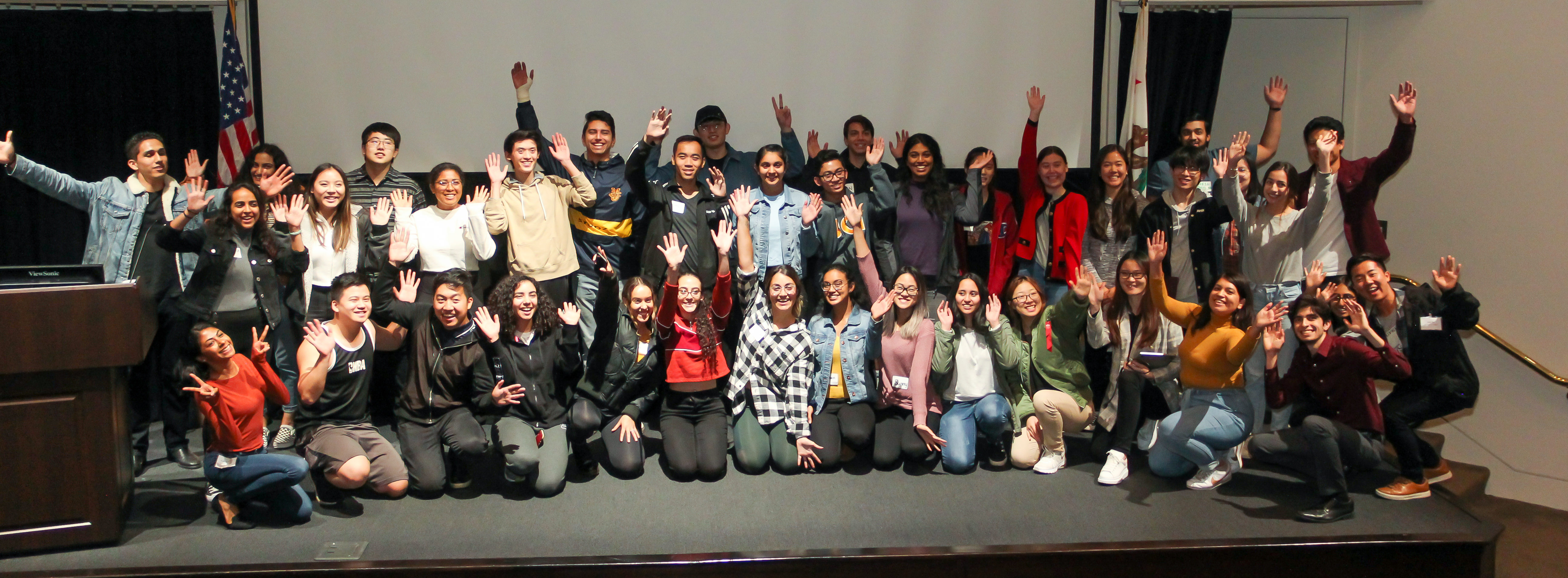
More than 130 participants competed in the Hackathon that aims to foster innovation and provide solutions to the opioid crisis that kills 130 people each day nationwide. 31 teams competed in five tracks, each designed to tackle a specific dimension of the opioid epidemic:
- Track 1: Assist the reentry population as part of their treatment plan.
- Track 2: Software application that provides peer to peer support (physician to physician) to increase the number of providers prescribing MAT treatment for opioid use disorder.
- Track 3: An application that provides a local directory for available treatments and providers for opioid use disorder.
- Track 4: Patient-centered software to reduce stigma and increase treatment retention.
- Track 5: Real-time/prediction models and visualization tools to assist Orange County Public Health and UCI Health to prevent addiction and overdose.
The winning teams were evaluated by two rounds of judging and pitched their solutions in the Beckman Center auditorium on the final day. Round 2 judging was undertaken by two Superior Court Judges, the Honorable Mary Kreber-Varipapa and Matthew S. Anderson, as well as a panel of public health professionals including Dr. Nichole Quick, Dr. Mario San Bartolome, Dr. Bharath Chakravarthy, Dr. Sean Young, Bright Heart Health CEO Jonathan Ciampi and NCAPDA Founder April Rovero.
The 2019 Opioid Hackathon winners will continue to be mentored throughout the next 12 months, attending retreats with UCIPT and start-up, health, technology and media professionals to help further develop the solutions created at the Hackathon. A research study led by Dr. Young will also continue over the next year, assessing the feasibility and acceptability of implementing Hackathon solutions, as well as the scientific facilitators and barriers that participants face.
A complete list of the 2019 Opioid Hackathon winners is below.
Track 1: Assist the reentry population as part of their treatment plan.
Dennis O’Brien, Jazime Bastida, Yusong Liu, Mariel Tisby, Andrew Luoma
The winners of Track 1 developed a dual-interface website for physicians and opiate use disorder patients re-entering the population. Patients use the website to fill out a daily log that the physician can view, documenting their emotions, symptoms and medication intake. They are also required to submit a picture of their pill packet each day to ensure the appropriate medication dose is taken. A holistic pain management approach can also be accessed and evaluated through the website.
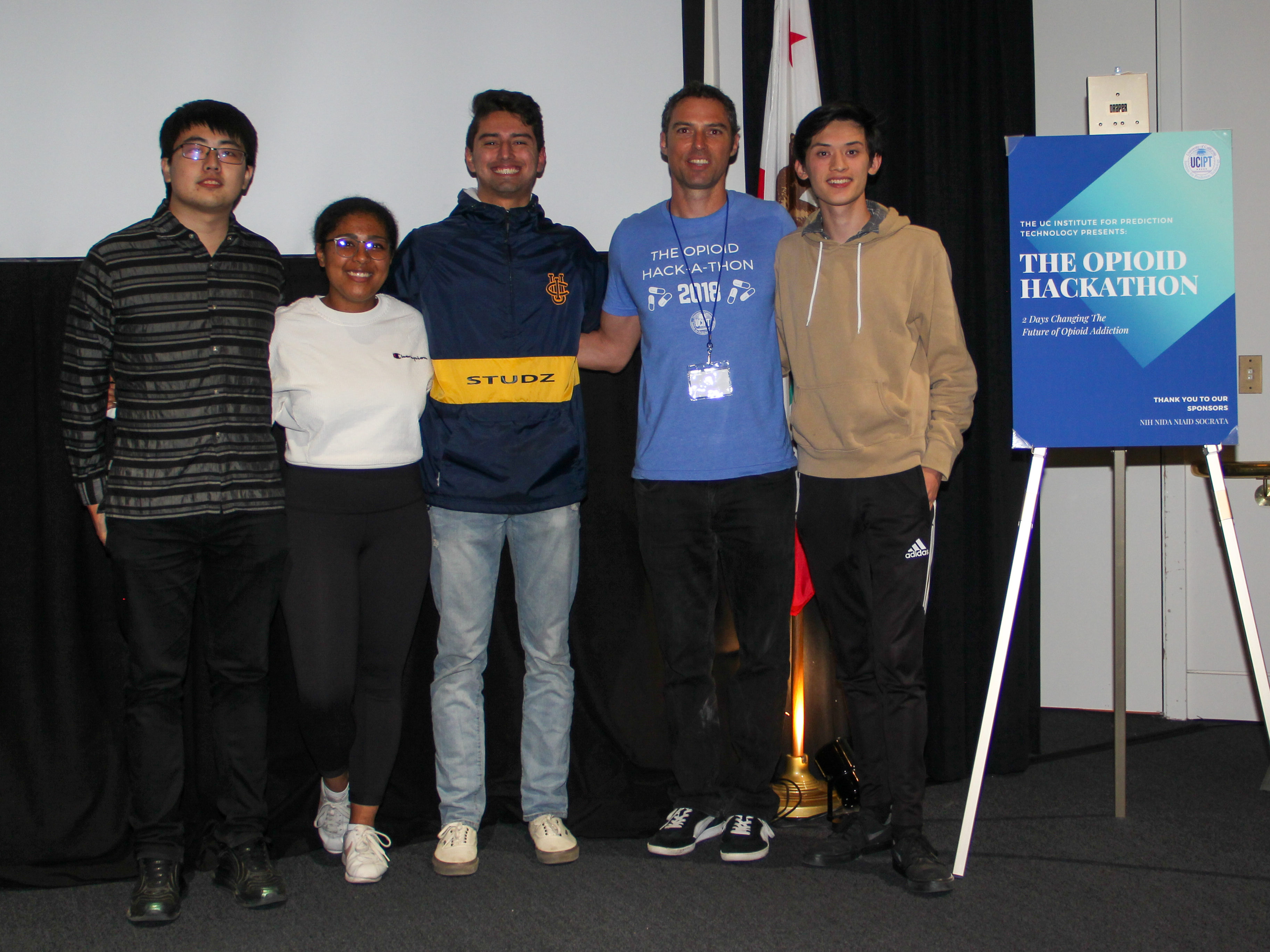
Track 2: Software application that provides peer to peer support (physician to physician) to increase the number of providers prescribing MAT (i.e., treatment for opioid use disorder.)
Abigail Valeria Reyes Martinez, Dr. Neil Patel, Yuchen Wang, Kaitlin Tamares, Qiuer Chen
The winning team in Track 2 developed software that integrates with an Electronic Health Record. The prototype facilitates and streamlines care for patients using opioids, and creates a platform for providers to collaborate, network and share ideas. The prototype integrates the California State Prescription Drug Monitoring Program records into the patient’s chart, and provides telemedicine capability for providers to create a virtual, comprehensive patient pain program.
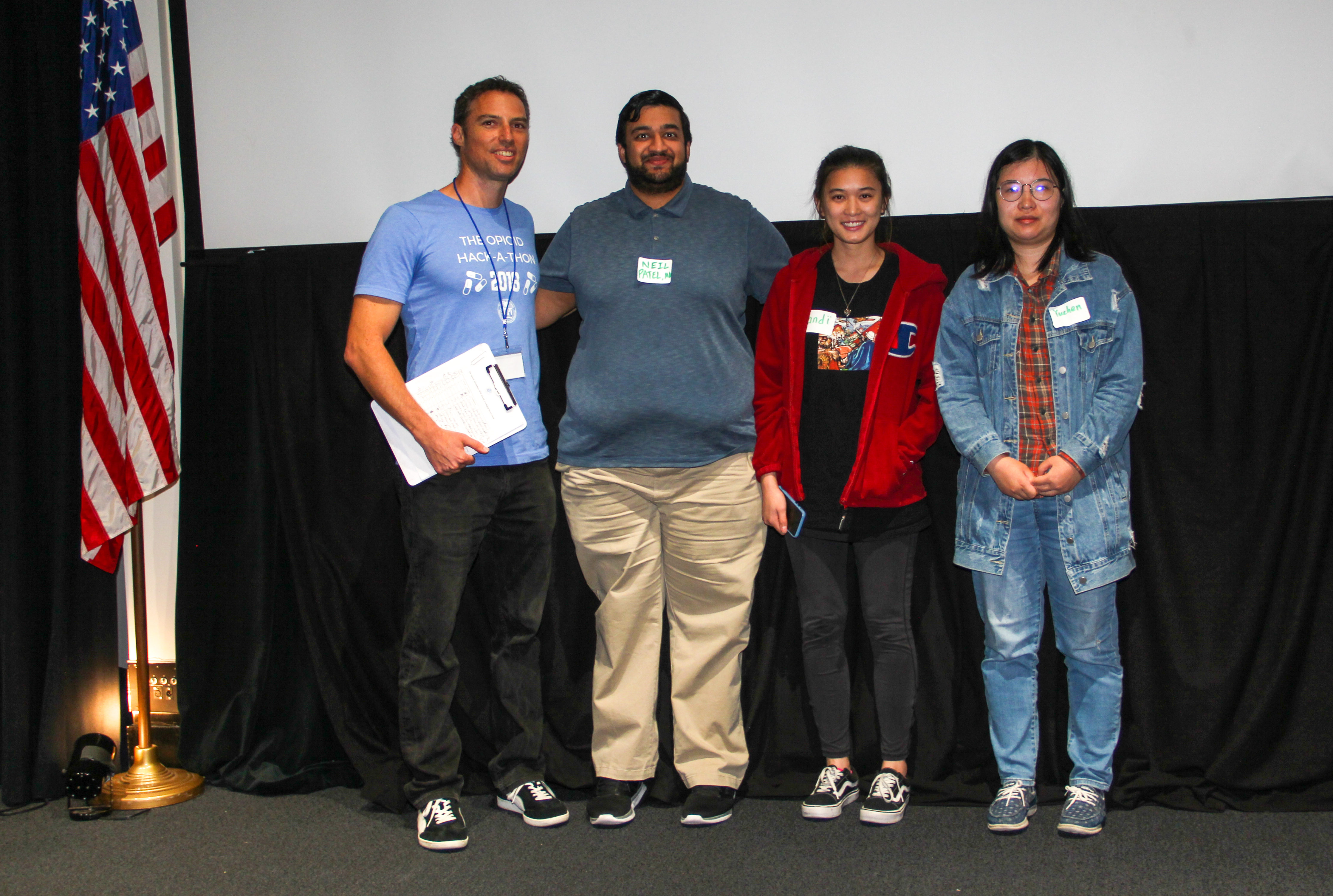
Track 3: An application that provides a local directory for available treatments and providers for opioid use disorder.
Janak Kaur, Jasmine Sran, Euisun Lee, Meghan Gaur, Noreen Delossantos
Track 3 winners created an accessible, interactive web and mobile application that allows users to locate a clinic that can help them with their addiction based on their individual needs. Website features include filters for payment options, medication-assisted treatments, treatment style, and language, as well as an interactive map that facilitates easy visualization of their geographical distance from clinics.
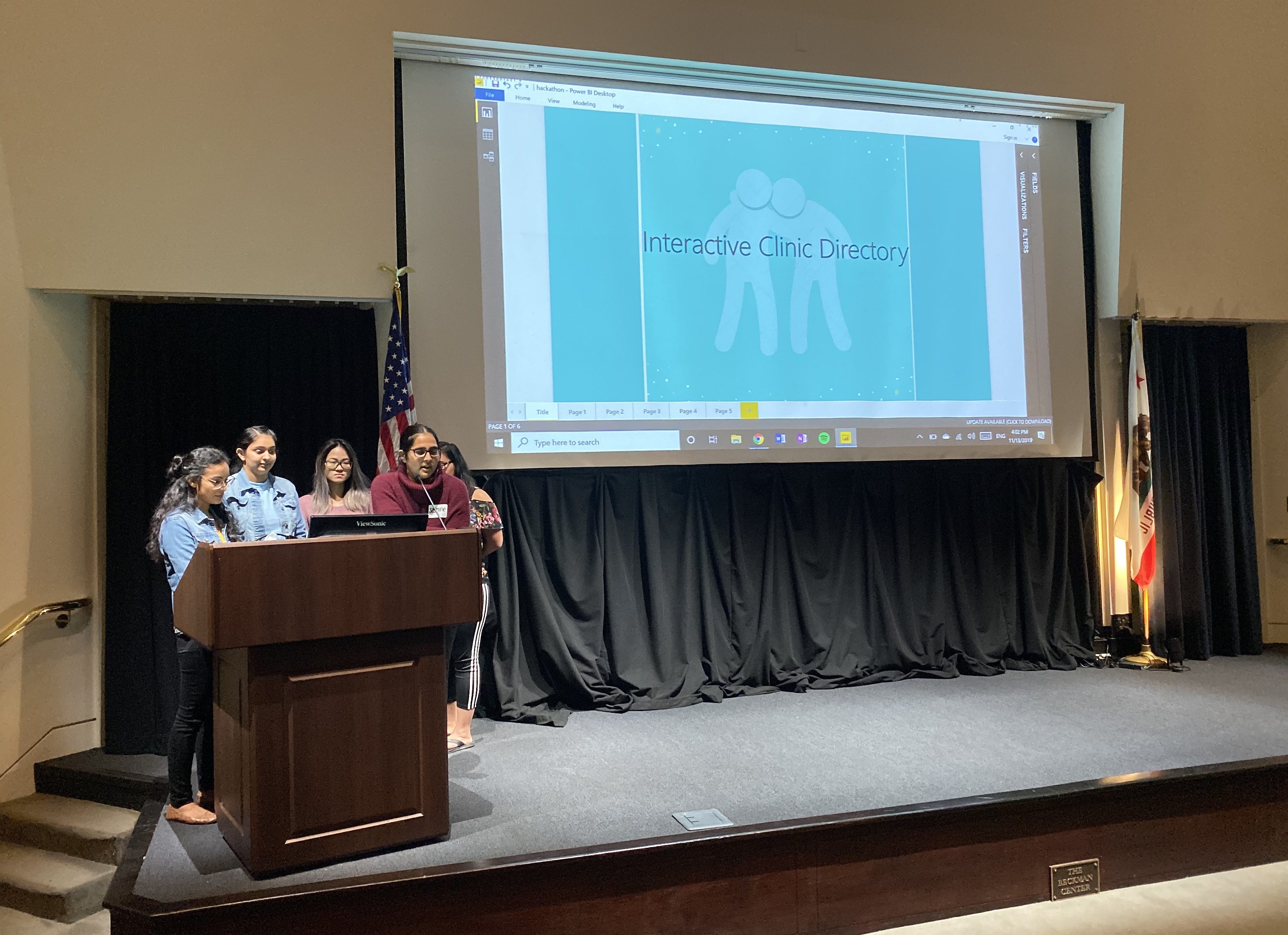
Track 4: Patient-centered software to reduce stigma and increase treatment retention.
Ali Rostami
The Track 4 winner created a Virtual Reality app to provide highly-immersive experiences into the lives of opioid use disorder patients. Accessing the content requires the user to wear a VR headset, whereby they find themselves standing on a virtual map of Orange County. VR flowers are scattered around the map, each representing a person who has experienced opioid use disorder. When the VR user picks up a flower, a video is launched within the VR headset that describes the life-story and experience of the opioid use disorder patient. This content aims to facilitate empathy and reduce stigma. Additionally, the VR app can increase treatment retention through the creation of community and access to resources within a highly-engaged and powerful virtual experience.
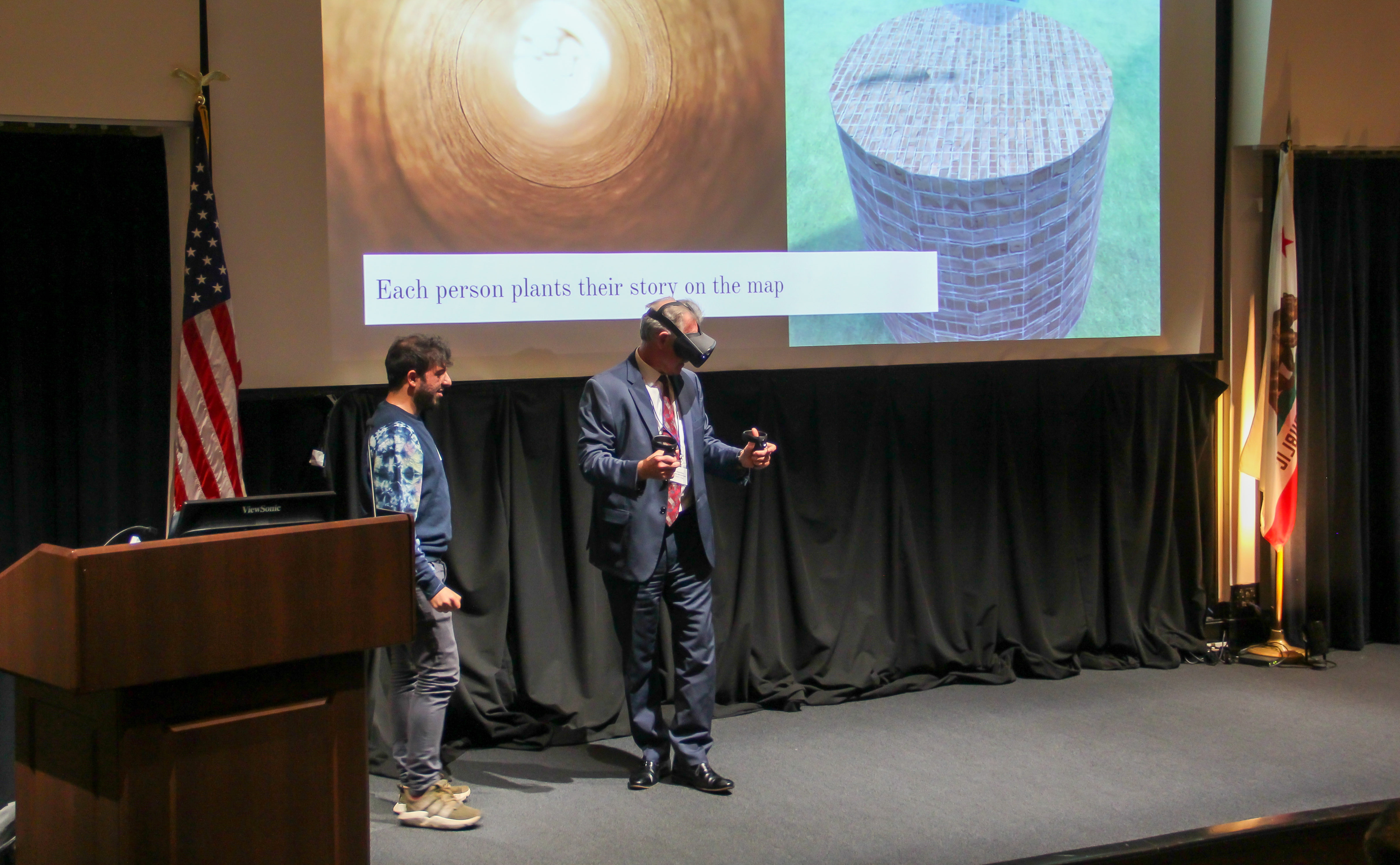
Track 5: Real-time/prediction models and visualization tools to assist Orange County Public Health and UCI Health to prevent addiction and overdose.
Jungin Hong, Polaris Li, Ali Al-Hakeem, Amberly Briones, Blair Huynh
The winners of Track 5 created a prediction model that collects emotional cues from Twitter, CDC data and state and federal economic data to predict California and U.S. opioid overdoses.
